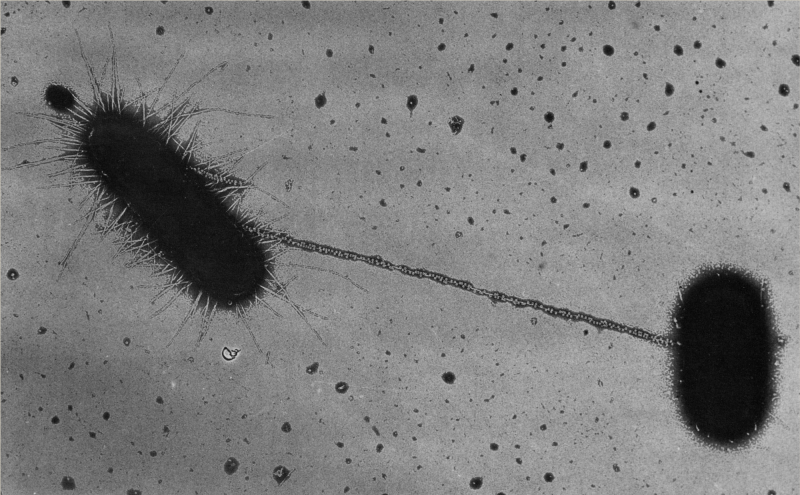Bacteria and fungi created natural antibiotics eons before drug companies turned them into medicines. To counter these natural microbe killers, bacteria and other microbes also created fiendishly effective antibiotic-resistance mechanisms long before humans started pumping antibiotics into humans and livestock. While overuse of antibiotics has been fingered as the driver of resistance to these drugs, the contribution of bacterial sex plays an underappreciated role, one that could bedevil efforts to fight antimicrobial resistance.
…
Conjugation occurs when two bacteria — a donor and a recipient — sidle up to each other. The donor creates a tube, called a pilus, that attaches to the recipient and pulls the two cells together. A plasmid from the donor passes to the recipient, providing the recipient with new genetic information.
…
Recent studies have uncovered a vast reserve of antibiotic resistance genes throughout domestic and wild habitats. These studies suggest that antibiotic resistance genes are ancient and can be readily accessed by modern pathogens through bacterial sex.
To fight antimicrobial resistance, researchers are exploring strategies to inhibit bacterial conjugation. Some are looking at ways to block the enzymes needed to transfer plasmids. Some are trying to find ways to interfere with the construction of the pilis. Still others are trying to exploit natural mechanisms, such as restriction-modifying enzymes or CRISPR-Cas gene-editing systems, that bacteria use to defend against invading genomes.
Read full, original post: Bacteria sex: the promiscuous process driving antibiotic resistance































